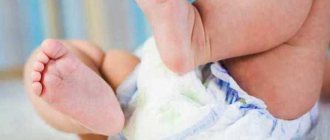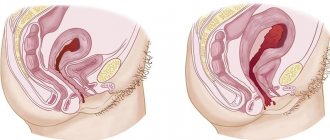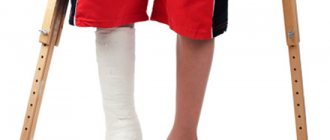This domain is parked by Timeweb
More than hosting.
The domain is parked at Timeweb
Submit your site to Timeweb
Timeweb is a company that hosts client websites on the Internet, registers website addresses and provides rental of virtual and physical servers. Place your website on the Internet - tell the world about yourself! To learn more
Our most popular product
What is the danger of diarrhea in a formula-fed baby?
A newborn baby in a family is a great joy and a huge responsibility for his life and health.
The main thing that he needs from the first days is high-quality, complete feeding and careful care. It is in the first year of life that the foundations of good health, good immunity, and normal mental development are laid. The most valuable product for a baby is mother's milk. But often the mother does not have it or it is not enough for normal feeding. There may be other good reasons to switch your baby to formula feeding. At the same time, breast milk must be replaced in such a way as not to harm the fragile little organism. The child should gain weight, grow, his delicate skin should be clean, his sleep should be restful, and his bowel movements should be regular and normal. But sometimes a bottle-fed baby experiences loose stools.
Is it possible to give formula to a child with diarrhea?
A baby staying on IV must definitely eat formula during the period of frequent loose feces. The only thing that can help is to switch him to adapted fermented milk and gluten-free mixtures + additionally slightly modify his usual diet. Changing the regimen consists of feeding the baby in small portions; the frequency of meals should be increased.
Adapted formulas (marked with the number one) are the best solution for feeding a baby in the absence of breastfeeding from birth to 6 months / if provided by the manufacturer - from birth to one year.
During the gluten-free feeding period, other complementary feeding products should not be consumed.
Causes of diarrhea in newborns
Frequent loose stools in a formula-fed newborn can have several different causes. Among them:
- incorrectly selected formula for feeding;
- rotavirus infection;
- staphylococcus;
- dysbacteriosis;
- intestinal infection;
- lactose intolerance;
- untimely introduction of complementary foods;
- teething;
- change of mixture;
- medicines;
- food poisoning;
- helminths;
- celiac disease;
- problems with the development of internal organs.
In a newborn, the digestive system is not fully formed, continues to form, and functions poorly. Therefore, it is so important to monitor the appearance of his stool from the first days, so as not to miss the onset of the disease or to adjust his diet in time. Diarrhea in a newborn with artificial feeding must be distinguished from normal feces. The feces of such children are thicker than those of those who drink mother's milk, it is homogeneous, and may contain underdigested white lumps of the mixture.
Diarrhea has a thinner consistency than normal stool, often yellow, sometimes green, with an unpleasant, sour odor. The frequency of stool increases. Feces may be streaked with blood, mucus, foam, or darker specks. All these signs are a reason to immediately contact your pediatrician.
Those immunomodulators and invaluable components of mother's milk that a breastfed newborn receives are absent in adapted formulas. Therefore, the immunity of a bottle-fed baby is much weaker. In this regard, there is a greater likelihood of infectious diarrhea caused by bacteria. The baby's body is very vulnerable to all kinds of infections during teething. At this time, children drag any objects into their mouths, not always clean ones, and increased salivation increases intestinal motility.
Another feeding mistake that can cause diarrhea in a formula-fed newborn is untimely or incorrectly chosen complementary foods. Once it is excluded, the baby’s diarrhea goes away in 2-3 days.
The appearance of diarrhea in a formula-fed baby may indicate problems with the functioning of the endocrine system or congenital diseases of the internal organs. Volvulus, appendicitis, and peritonitis can also cause diarrhea in a child.
Celiac disease, or celiac enteropathy, is a disease manifested as an allergic reaction to foods containing gluten. Causes loose stools, bloating, and “boiling” in the stomach of a bottle-fed newborn. Treatment consists of following a diet that excludes grains - wheat, rye, oats.
When to see a doctor
Diarrhea in a mixed or bottle-fed baby can be caused by a change in diet, stress, or a new diaper. Therefore, if diarrhea is not accompanied by fever, vomiting, or anxiety, then you can postpone a visit to the doctor.
You need to consult a specialist if, in addition to loose stools, there are other signs:
- Clots of blood and mucus. They indicate a serious disorder.
- Vomiting and fever. If a formula-fed baby develops these symptoms in addition to diarrhea, consult a doctor immediately.
- Refusal to eat, anxiety. When a baby completely refuses to eat, cries and worries, gastrointestinal diseases can be suspected.
- Small volume of urine. If, against the background of loose stools, the newborn produces little dark urine, you need to call an ambulance.
If diarrhea in a newborn, both breastfed and bottle-fed, does not stop within 2-3 days, despite a change in diet, and is accompanied by lethargy, drowsiness, and dry skin, you need to undergo an examination and determine the cause of the disorder.
Changes in a small child's stool are important for assessing the baby's health. That is why parents must be able to distinguish normal stool from diarrhea in order to promptly call a doctor for their baby.
Why is diarrhea dangerous in babies?
First of all, diarrhea causes rapid and severe dehydration in children under one year of age. This is deadly. Causes for concern may be:
- sunken fontanel;
- lethargy;
- drowsiness;
- dry skin;
- chapped lips;
- moodiness;
- refusal to eat and drink.
Self-medication of the baby is unacceptable! Apart from drinking plenty of fluids, if diarrhea is detected, you should not give your baby anything. You need to call a doctor immediately. If diarrhea is accompanied by high fever, only an antipyretic drug is allowed. When the pediatrician arrives, you should leave a diaper with feces to facilitate diagnosis.
Causes of chronic diarrhea
Chronic diarrhea, which lasts several weeks or months with periodic exacerbations, is a symptom of a general disease or pathology of the digestive tract:
- Celiac disease is gluten intolerance.
The disorder is very rare; diarrhea begins after eating foods containing gluten. This vegetable protein is found in wheat, rye, and oats. The disease is accompanied by constant diarrhea and severe gas formation.
- Dysbacteriosis.
An imbalance between beneficial and harmful bacteria in the intestines. Develops due to taking antibiotics.
- Lactase deficiency.
Manifested by diarrhea after consuming dairy products. It occurs due to a lack of an enzyme in the body that breaks down milk sugar.
- Non-infectious intestinal diseases (Crohn's disease, duodenitis, irritable bowel syndrome) cause inflammation of the mucous membrane, increase peristalsis, so food comes out very quickly.
Chronic diarrhea leads to impaired absorption of nutrients, decreased intelligence and developmental delays (mental and physical). This condition requires urgent medical treatment.
If you have celiac disease, you must follow a gluten-free diet for life.
How to relieve your baby's condition during diarrhea
Based on the symptoms, the pediatrician makes a diagnosis and prescribes treatment. Parents are obliged at this time to take measures to alleviate the baby’s suffering, for this they should:
- feed the baby with a mixture diluted in half;
- cancel any complementary foods if they were introduced;
- ensure the correct drinking regimen, drink frequently, including Regidron or electrolyte solutions - several teaspoons every 10-15 minutes;
- do not change the mixture unnecessarily or consult a doctor before changing it.
The main rule for parents: if a bottle-fed baby has loose stools, this is a reason to consult a doctor. It is unacceptable to treat this symptom yourself, especially with folk remedies, without consulting a specialist! You cannot waste time and allow dehydration and serious illness to develop.
After each bowel movement, the child is carefully washed, blotted dry and lubricated around the anus with baby cream or oil so that there is no irritation that causes pain and anxiety. You can relieve colic and tummy pain by gently stroking it and laying the baby on your stomach.
Possible complications and prevention
Diarrhea is considered one of the serious signs that a baby is ill. The quick awareness of the baby's parents about the dangers of loose stools, along with the usual indigestion in a newborn, gives a greater chance of defeating the disease with minimal losses in the shortest possible time. If you start having diarrhea, there is a risk of complications:
- weight loss;
- poor absorption of nutrients;
- rickets;
- lack of calcium in the body;
- dehydration;
- loss of strength and drop in body temperature.
To avoid diarrhea, preventive measures are recommended. The worst season for this problem occurs in the summer; during this period it is important to carefully monitor the baby’s nutrition and ensure the daily water intake.
Follow simple hygiene rules for yourself and your baby. Wash your hands regularly with soap and keep feeding supplies clean.
It is necessary to introduce complementary foods to the baby only with high-quality and hypoallergenic products.
If symptoms of pregnancy occur, we recommend reviewing your individual regimen and diet, or changing the formula, and consulting with your doctor.
Source: toxicos.ru
Green stool in a newborn
Original feces - meconium - are green. In this way, in the first days after birth, the child’s body is freed from the remains of amniotic fluid and epithelium. In the future, green stools, especially watery, frequent ones, should cause concern and become a reason to get tested. Green diarrhea in a formula-fed baby can cause lactose intolerance. In this case, milk is contraindicated for the child; intoxication of the body may occur.
Green stools, for example, with mucus, do not always mean a serious illness. This may be a signal that the digestive system is not fully formed; there are not enough enzymes to process untimely complementary foods. The green color of the stool may also indicate an increased iron content in the milk formula.
Green, foul-smelling diarrhea interspersed with blood, black spots, foam, accompanied by vomiting and high fever, may mean a rotavirus or intestinal infection, a disease of the internal organs, or internal bleeding. In order not to waste time guessing, you need to get your stool tested as quickly as possible.
Causes of acute diarrhea
Most often, children experience acute diarrhea. Abnormal bowel movements can be caused by a variety of reasons:
- Nutritional features.
The intestinal microflora and immune system of children are very unstable, so diarrhea may appear after eating new foods. Such symptoms are often observed when complementary foods are introduced.
In infants, diarrhea may occur due to food eaten by the mother.
- Medicines.
Diarrhea can be a side effect of certain medications: choleretic drugs, anti-inflammatory drugs, antibiotics. Diarrhea occurs due to the development of dysbiosis, long-term treatment or dosage violation.
- Infections not related to the gastrointestinal tract: sore throat, otitis media, rhinitis.
These diseases are accompanied by the formation of mucus in the nasopharynx, which flows into the stomach and changes the consistency of stool. In children under one year of age, diarrhea often occurs due to teething.
- Food and chemical poisoning.
One of the most common causes of diarrhea in children. Toxic substances enter the body when consuming stale or low-quality products.
- Intestinal infections caused by bacteria and viruses (dysentery, rotavirus, salmonellosis, staphylococcus).
Children attending kindergarten and school are susceptible to such diseases. Infection occurs through contact with a carrier and failure to maintain personal hygiene.
- Diarrhea occurs when a child is infected with worms or other intestinal parasites. The waste products of helminths are toxic, irritate the mucous membrane, provoke its inflammation and intense contraction of the intestinal muscles.
- Diseases of the liver or pancreas, endocrine disorders provoke the development of enzyme deficiency and lead to disruption of the digestion process.
Dr. Komarovsky's comment that diarrhea in itself is not a diagnosis, but occurs as a result of some disease.
Diarrhea in a newborn with artificial feeding
What should feces (stool) be like in newborns and infants? How do the properties of feces depend on the child’s nutrition? In what cases does a change in the nature of a child’s stool indicate illness? In the first year of a child’s life, the functions of the digestive system are not yet fully formed, and therefore, the feces (stool) of newborns and children of the first year of life have a number of characteristic features. Stool analysis in children of the first year of life also has some features that are important to consider when trying to establish a diagnosis of dysbiosis or digestive disorders. Properties of feces. Continue reading →
Nutrition for long-term diarrhea
Correction of the diet is one of the most important tasks in the complex treatment of prolonged diarrhea. For men with similar symptoms, split meals and reduced portion sizes are recommended. It is necessary to exclude any irritating products and substances from the menu: vinegar, spices, flavorings. It is advisable to prepare food using gentle methods (stewing, baking, boiling). For unspecified frequent diarrhea, it is recommended to limit the consumption of whole milk, spices, fatty sauces, and fresh fruits. Among vegetables, it is necessary to reduce the consumption of cucumbers, zucchini, and radishes to a minimum. Coffee and alcoholic drinks are allowed in small quantities and strictly outside the period of exacerbation.
Principles of diet for diarrhea
To alleviate the condition during the period of acute diarrhea, the diet should consist of sterilized applesauce, boiled rice, bananas, wheat crackers without adding flavorings or dyes. Meat should be consumed in the form of soufflés, meatballs and casseroles. Boiled pieces should be finely chopped using a meat grinder or blender.
Video - Constant diarrhea: causes and consequences
Have you been struggling with GASTRITIS and ULCERS for many years without success?
“You will be amazed at how easy it is to cure gastritis and ulcers just by taking it every day.
Diarrhea is a pathological condition that occurs in a person, regardless of his age category, and is manifested by a frequent urge to defecate. This means more than three trips to the toilet, and the stool becomes liquid, in some cases there are pieces of undigested food in it. Diarrhea cannot be classified as an independent disease. This is a symptom accompanying various diseases affecting the digestive system.
Why does a newborn develop diarrhea when bottle-fed?
- Cleaning your face at home from acne and blackheads - 04/17/2019
- Which formula is best to choose for a newborn with mixed feeding: advice from mothers! — 06/16/2017
- How to get SNILS for a newborn child: list of required documents - 06/09/2017
The natural and more correct nutrition of an infant is mother's milk, but there are reasons why this becomes impossible. In such cases, it is necessary to replace breast milk with artificial formulas. When changing food, mother and baby face a lot of problems and worries. The main cause of concern is diarrhea.
Review of approved formulas for infants with diarrhea
An important point is the choice of formulas for infants with diarrhea.
| Dairy-free medicinal mixtures made from soy protein have a pronounced strengthening effect. | ||
| Name | Firm | A country |
| Alsoy - special lactose-free for children from birth to one year | Nestlé | Switzerland |
| Bona-soy - dry mixture | Kumos | Finland |
| Vaisoya | White Labs | Great Britain |
| Nutrilak Soya - a dry product based on soy protein isolate for therapeutic nutrition of children of the first year of life and older | Russia | |
| Nutrisoya | Nutrition | Holland |
| Similac Isomil - for comfortable digestion and maintaining healthy intestinal microflora | Abbott Laboratories | USA |
| Sma white cap (viso/nursoy) | Waet Lederle | USA |
| Soya Semp - hypoallergenic for newborns | Semper | Sweden |
| Frisosa | Friesland | Holland |
| Humana LP | Humana | Germany |
| Heinz soy mixture | Heinz | USA |
| Enfamil-soy | Mead Johnson | USA |
Dairy-free formulas are based on demineralized whey (one of the protein components). These include: Nan lactose-free, Nutrilon Premium lactose-free.
Norms for bowel movements when bottle-fed
The norm for a bottle-fed baby is to have stools up to 4 times a day, more often than once.
After the introduction of complementary foods, the norm changes to 2 times a day. The stool is brown in color and has a dense texture. Normally there should be no impurities in feces.
Diarrhea is one of the manifestations of gastrointestinal tract disorders, which is characterized by frequent bowel movements (from 6 times per day) and loose stools.
Causes of diarrhea in a newborn
In newborn babies, the digestive tract organs are poorly formed, which causes problems with the absorption of the resulting proteins, fats and carbohydrates.
For this reason, children very often develop symptoms such as diarrhea.
There are many reasons why problems with a child’s stool may arise:
- infectious diseases of the gastrointestinal tract (immune system response to exposure to toxins);
- changing one mixture to another (this happens due to differences in the composition of the mixtures; the infant’s digestive system does not have time to quickly adapt to the new composition of the diet. The new mixture should be introduced gradually, in small doses);
- poisoning (poisoning can occur when using an expired formula, eating pieces of stale food or from plastic utensils);
- helminthiasis (infection can come from animals or adults);
- teething (this occurs due to an increase in the volume of saliva secreted, this in turn increases intestinal motility and leads to loose stools);
- Complementary feeding is not appropriate for the age category (one of the most common causes of diarrhea in bottle-fed children is due to the unpreparedness of the baby’s digestive system for the introduction of new foods; complementary feeding should be introduced when the body is ready for this; the favorable age, according to doctors, is 6 months);
- dysbiosis (normally, bacteria live in the human intestines, but when a child is born, his intestines are practically in a sterile state. As the child develops, the bacteria necessary for digestion appear, when microbes multiply at an accelerated pace, an imbalance occurs - dysbiosis);
- gluten intolerance (occurs when eating gluten, this occurs due to a lack of enzymes aimed at breaking it down);
- an allergic reaction to the composition of the mixture or complementary foods (in such cases, diarrhea occurs as a result of exposure to the allergen on the intestines);
- reaction to medications (as a side effect);
- dirty hands, dishes or toys (pathogenic microorganisms enter the intestines and interfere with the proper functioning of the newborn’s gastrointestinal tract);
- emotional outburst (the child’s body is very sensitive, so even emotional stress can cause various ailments, including diarrhea).
If diarrhea occurs in children under one year of age, you should consult a pediatrician.
Diarrhea is a fairly serious problem in infants due to its ability to cause dehydration, which can even be fatal. It is not advisable to engage in self-medication and experiments regarding the nutrition of infants.
Symptoms and causes of bowel dysfunction in infants
In order to find out whether a newborn has diarrhea, it is important to understand its normal size and color. Ideally, an artificial baby's stool is thicker than that of a baby. The color should have a slightly brown tint without impurities. The norm of bowel movements should be 3-4 times a day for breastfeeding, and when they start feeding him with formula, it becomes less frequent - once every 1-2 days.
Symptoms of unhealthy diarrhea are:
- orange or green stool
- bad smell
- elevated temperature
- foamy, runny, or with a lot of mucus
- pain in the tummy - the child shows this by tucking in his legs and incessant crying
- the stomach becomes dense and large in volume
- streaks of blood
Artificially fed
- The main causes of diarrhea, as a rule, lie in proper or improper nutrition. The main reason is the unbalanced diet of the nursing mother. Frequent consumption of fruits and fresh vegetables, fatty varieties of lard or meat, and greens can lead to digestive upset.
- Another common cause is an allergic reaction to infant formula. Babies who have reached the age of 6 months most often experience diarrhea, even with the gradual introduction of complementary foods. The reason is that a new diet loads the stomach and intestines, and with a limited amount of enzymes, a disorder occurs.
- Gluten and lactose deficiency leads to limited absorption of these nutrients, which will manifest itself as a rash on the skin, weight loss and diarrhea.
- Diarrhea can also occur when teeth emerge. It is characterized by increased salivation, as a result of which a lot of saliva enters the stomach, due to which the immune system weakens, the intestinal walls are irritated and the functioning of peristalsis is disrupted. This illness will go away on its own over time and does not need to be treated.
- Intestinal infection in the usual forms of the disease goes away on its own. In the acute form, complete intoxication of the child’s body begins, body temperature increases, vomiting and nausea. If the cause is amoebiasis, salmonellosis or dysentery, the child may lose a lot of weight, convulsions and dehydration may appear. In these cases, you will have to be seriously treated - you will need urgent hospitalization and stay in the infectious diseases department.
- For congenital intestinal diseases that cause diarrhea in a newborn during artificial feeding, which will require urgent surgical intervention.
- Gas formation or bloating leads to acute pain and fever, which can cause peritonitis, volvulus, intestinal obstruction and even appendicitis.
- A newborn may also experience diarrhea when taking antibiotics, which can disrupt the stomach flora.
Dysbacteriosis is not a pathology, but only a temporary disruption of the work between the beneficial and pathogenic environment of the intestines. Because their digestive system is easily vulnerable and young, it is easily susceptible to various diseases, so in certain cases it may be necessary to adjust the microflora with the help of probiotics.
Mixed feeding
- Diarrhea in a newborn with mixed feeding is accompanied by problems with watery bowel movements. Using the wrong formula or the wrong foods in the mother's diet can also cause such problems.
- A mixed type of diet implies a small amount of mucus in the stool, so in this case you should not worry - this is not a pathology. E. coli predominate over lactic acid bacteria, the appearance of fermentative flora, and the processes of decay predominate - all this is typical for mixed feeding.
- Feeding your baby cow's milk is another common cause of indigestion because it is richer in fat. It is necessary to give such milk to a child, starting with small quantities, so that he slowly gets used to it. If an allergy is not detected, then its concentration can be gradually increased.
Diarrhea in infants with artificial feeding
Changes in stool determine the baby's health status, so parents need to figure out what diarrhea looks like and how different it is from normal stool. A baby who does not receive mother's milk has thick, smooth, even brown stools.
A newborn has bowel movements up to 2-3 times a day, but you should not be alarmed and immediately go to the doctor if this happens more often. Solid food, which is introduced over several months, reduces the number of bowel movements - they occur once every 1-3 days. If deviations from the norm are noticed, the feces become liquid, foamy, there are lumps or mucus in it - this is the main sign that not everything is in order with the baby’s digestive system.
Signs of diarrhea
You need to monitor the consistency of your child’s stool and its color. If the disorder is caused by a new complementary food or mixture, then it is functional in nature and goes away quickly. In case of illness, diarrhea lasts more than 3 days.
The signs of diarrhea differ. When you change complementary foods or the appearance of new incisors, the stool becomes liquid and turns dark brown or even green. The sensitivity of the baby's digestive tract is still very high, and the microflora only populates the intestines, and bilirubin gives the stool a greenish color. Therefore, the appearance of green stool in a formula-fed baby is not considered too alarming a sign.
Also, some amount of mucus and even pieces of undigested food are not a threat to the health of the baby, especially if they appeared immediately after the introduction of new complementary foods. Most likely, the baby’s stomach and intestines have not yet adapted to the new product.
Liquid stool that appears in a bottle-fed baby indicates a serious disorder if, in addition to changes in consistency, there are other signs:
- Smell . A clear symptom of the disease is a change in smell - it becomes swampy and very pungent. In infectious disorders, a foul odor appears.
- Inclusions . The feces become not just liquid, but foamy, including mucus and undigested food debris. Blood clots in the stool are very dangerous - they can be the result of bleeding.
- Frequency . Diarrhea is considered to be stool if the frequency exceeds 6 times a day.
Important! Diarrhea may be accompanied by bloating, severe pain, and refusal to feed. In such cases, consult a doctor immediately.
Main signs of diarrhea
It is quite simple to determine diarrhea in a baby; the main thing is to carefully examine the contents of the diaper after bowel movement.
The following signs indicate the development of diarrhea:
- the stool is loose, often watery or foamy;
- the smell of feces is unpleasant, sour;
- Blood or purulent clots and particles of food that have not had time to be digested are noticeable in the stool.
You should also monitor the amount of bowel movements. If more than six of them occur per day, you should sound the alarm and go to the doctor. Self-treatment is not recommended - there is a risk of harming the child and causing serious complications. Only after diagnosis, a doctor prescribes treatment that will help cope with diarrhea in the baby.
Symptoms of weekly diarrhea
Each disease is accompanied by symptoms unique to it; the diseases also differ in the mechanisms of development, therefore it is necessary to evaluate other symptoms:
- With viral gastroenteritis, in addition to loose, frequent stools, noticeable nausea, vomiting, and spasms in the intestinal area appear. There are spots of blood or pus in the stool.
- With food poisoning, diarrhea is accompanied by abdominal pain, fever, nausea, and vomiting.
- Travelers' diarrhea can additionally manifest itself as severe stomach pain, nausea, and significant vomiting attacks.
- With bacterial enterocolitis, against the background of inflammation of the mucous membrane, pus or blood appears in the stool, the temperature increases, accompanied by fever, abdominal pain.
When infected with parasites, diarrhea most often goes away within a week, and the only additional symptoms present are pus in the stool. Long-term use of pharmaceutical drugs causes diarrhea and pain in the abdominal area.
Possible reasons
In the first months of life, a baby's digestive system is not yet fully developed, so problems may arise with digesting food. The presence of fats and proteins in formulas does not allow infants to digest complementary foods well, which leads to intestinal disorders and bouts of diarrhea.
Another reason for the development of diarrhea is the sensitivity of the digestive organs to microbes and allergens. The body's defenses are not enough to fight harmful elements, so the entry of hazardous substances into the body provokes diarrhea.
Less common causes of diarrhea include:
- infectious diseases;
- change of diet (introduction of a new mixture with a different composition into complementary foods);
- overfeeding;
- early artificial feeding;
- individual reaction of the body to some components of the mixture;
- dysbiosis.
The main danger with diarrhea lies in dehydration of the small body.
To avoid serious consequences, you should immediately consult a doctor, especially if the diarrhea lasts at least three days, with the same intensity.
Parents should also be alerted to additional signs - changes in the color of urine, increased temperature, and the appearance of vomiting. Such symptoms can indicate a serious illness that requires immediate intervention.
Can diarrhea last more than 10 days with infectious diseases?
Infectious intestinal diseases are predominantly acute lesions of various segments of the large or small intestine, provoked by the active growth and reproduction of pathogenic flora in the intestinal lumen. The main causes of acute intestinal infections are consumption of expired and low-quality foods, poor heat treatment and viral diseases caused by viruses from the group of rotaviruses and enteroviruses.
Intestinal infections have severe symptoms and are manifested by fever, profuse vomiting, abdominal pain, intestinal spasms, and acute diarrhea. It is diarrhea that is considered one of the main manifestations of OCI: the patient’s stool becomes watery, mucus and foam appear in it, and a sharp putrid odor occurs. The number of bowel movements in a female dog can reach up to 10-12 times; the process itself is painful and does not bring relief after completion.
In most cases, diarrhea goes away completely within 5-7 days from the moment the first signs appear, but in some cases recovery can take up to 2 weeks or more (for example, with an enterovirus infection). This is a clinically serious condition requiring specialized care in a hospital setting.
Prevention
Simple measures that are recommended to be strictly followed will help prevent the development of diarrhea in your baby.
There are no particular difficulties here:
- Adults' hands should be constantly clean;
- monitor the cleanliness of your baby’s toys;
- change the mixture only if necessary;
- visit your doctor regularly for examination;
- do not overfeed the baby;
- Do not use pharmaceutical drugs without prescription from a specialist.
Another important rule is to carefully monitor the condition of the baby after feeding. Some complementary foods can cause allergies, which can lead to diarrhea.
It is recommended to begin treatment of diarrhea in an infant only after the doctor has determined the cause of loose stools. It is prohibited to use medications on your own, even the safest ones, as this can harm the baby and prevent an accurate diagnosis.
Due to diarrhea, a small body rapidly loses fluid. It is recommended to replenish the lack of water with saline solutions or pharmaceutical preparations. Regidron is usually used (give 12-15 milliliters hourly).
The mixture needs to be prepared liquid, the amount of water should be doubled. If complementary feeding is used, remove all dishes from the menu until diarrhea is completely eliminated.
Give the mixture in small portions, but more often. Carefully monitor the consistency of the stool - if after feeding there is a deterioration, the intensity of diarrhea increases, find out from the doctor whether another artificial mixture should be introduced into the menu. It’s better not to do this unless absolutely necessary - the baby’s stomach is too delicate, so it can react to a change in feeding with unexpected reactions.
Diarrhea in an infant is a dangerous manifestation, especially if the diarrhea is caused by complex diseases. It is better not to try to find out on your own why loose stools appeared - only a doctor will accurately diagnose the disease and recommend effective measures for its treatment.
Deviations in stool consistency indicate changes in the baby’s healthy condition. Both parents should be able to distinguish normal stool from diarrhea in order to provide timely medical attention. You need to choose a special mixture for diarrhea in an infant, which will help safely eliminate the problem.
Treatment
The main commandment of all parents: “Do no harm!” Therefore, if diarrhea occurs in a newborn, you should never self-medicate. Entrust your child to professionals.
Before the doctor arrives, carefully monitor the baby’s condition and give him Regidron to drink to prevent dehydration. The solution should be given every 10–15 minutes, a few teaspoons. Never give any medications from an adult medicine cabinet.
Leave one diaper so that the doctor can independently assess the condition of the stool and make a preliminary diagnosis. Be sure to wash your child after each episode of diarrhea to avoid irritation of delicate skin.
Treatment is always prescribed depending on the cause of diarrhea in a newborn.
- Dysbacteriosis or imbalance of intestinal microflora. Most often, this problem is encountered by parents who have undergone antibiotic therapy or other serious drug treatment. Under the influence of medications, not only pathogenic but also beneficial bacteria are destroyed in the digestive tract. After such an attack, the main goal of the treatment is to repopulate the intestines with beneficial microflora. For this purpose, probiotics and prebiotics are used. And to prevent problems with loose stools, it is recommended to start taking them at the stage of antibiotic treatment.
- Intestinal infection, food poisoning. Babies who are breastfed, along with their mother's milk, receive all the necessary antibodies to infections, making their immunity stronger and much better at resisting pathogens. Where a baby on natural feeding will lick a dirty toy without consequences, a baby on artificial formula can earn a whole bunch of problems. With an intestinal infection, diarrhea is accompanied by vomiting, nausea and fever. There may be streaks of mucus or blood in the stool. Such an infant is indicated for treatment with special antibacterial drugs with a wide spectrum of action. In children with food poisoning, treatment depends on the severity of the condition. Mild forms can be treated with sorbents without a severe drug attack.
- Intolerance to certain foods (food intolerance). This is not an easy allergy, the attack of which can be relieved with antihistamines. Treatment of diseases of this nature requires careful diagnosis, nutritional correction, strict adherence to diet and other measures. Newborn children in serious conditions are hospitalized, and the necessary therapeutic measures are taken in the hospital.
- Appendicitis, volvulus. Both conditions are indications for surgery. And here it is important not to miss the time when the operation can save the baby’s life.
We recommend: Are diarrhea and cough dangerous in a child without fever - what do parents need to know?
Causes of diarrhea when consuming the mixture
At the time of artificial feeding, somewhat different digestive processes occur in the baby’s body than in infants fed on mother’s breast milk. Diarrhea in a bottle-fed baby can occur for the same reasons as when breastfeeding. But there is a group of factors associated with mixtures.
Loose stools often occur due to dysbiosis, intestinal infections and as a result of changing the formula. An interesting fact about loose stools is the period of teething. Additional causes of diarrhea include:
- poisoning;
- mixing mixtures;
- premature introduction of complementary foods;
- intolerance to lactose/gluten components;
- inflammation of the appendix;
- intestinal obstruction;
- rotavirus infection;
- reaction to medications (usually antibiotics);
- a group of diseases associated with the penetration of parasitic worms into the human body;
- pancreatitis;
- state of stress.
A man's diarrhea does not go away for more than 1 month
There are many reasons that can cause stable stool liquefaction in an adult man. They can be associated both with poor nutrition and with severe diseases of the gastrointestinal tract, and less commonly, of the vascular and hematopoietic system. The most common pathologies with similar symptoms are listed in the table below.
| Disease | Image | What it is? |
| Enteritis | Inflammation of the mucous layer of the small intestine with signs of dystrophic and atrophic changes, in which the absorption and assimilation of nutrients is impaired | |
| Obstruction or atresia of the bile ducts | Obstruction of the bile ducts, occurring in 3-5% of men (mostly under the age of 30) | |
| Celiac disease | Intolerance to a complex protein that is part of the chemical composition of most grains (gluten) | |
| Ulcerative colitis | Chronic damage to the large intestine with signs of an inflammatory process that develops under the influence of external and genetic factors | |
| Atrophic gastritis | A disease of the stomach in which gradual atrophy of the mucous and submucosal layer of the gastric walls occurs. It is more often diagnosed in men over 45-50 years of age and is considered a precancerous condition. | |
| Lactase deficiency | Lactose intolerance due to congenital or acquired deficiency of lactase, a digestive enzyme that breaks down lactose | |
| Intestinal vasculitis | Inflammation of blood vessels, arteries and veins of various segments of the intestine | |
| Intestinal ischemia | Poor circulation in the intestinal vessels, associated with blockage or narrowing of their lumen, as well as the formation of blood clots (intestinal thrombosis) | |
| Polyposis | Tumor process in the mucous layer of the small and large intestines, as well as the rectum |
Important! Diarrhea that does not go away for more than 1 month can be one of the manifestations of colorectal cancer, so you should not self-medicate if specialized therapy with antidiarrheal and antimicrobial drugs does not produce positive results within a week.
Common signs of diarrhea
Methods for treating diarrhea in infants
Before determining methods of treating diarrhea, you need to know the natural state of the stool of a formula-fed baby. The color of the stool should be brown, and the density of bowel movements should be slightly higher than that of an infant.
There are a wide range of treatments for diarrhea in infants. Before self-medicating, focus on the general condition of the child, and if necessary, seek the help of a specialist. It is important to begin the process of treating loose stools in the first hours of unpleasant symptoms. Observed diarrhea in a bottle-fed infant can be easily treated with medications, rehydration preparations (re-saturation of a previously dehydrated substance with water), antibacterial therapy, sorbents, biological products, and enzyme preparations.
Causes of pathological loose stools
Loose stools, which are not normal, indicate that not everything is in order in the baby’s body. The reasons for this pathology can be different:
Nutrition
If a newborn has loose stools a short time after eating, then most likely it is associated with various nutritional disorders. Perhaps the baby food was prepared incorrectly, or the baby ate too much, perhaps breast milk was replaced with regular milk, or the rules of personal hygiene were not observed sufficiently (the dishes were not washed well).
Infections
A very serious reason. If a nutritional problem is easy to eliminate, then treating the infection will be long and troublesome. Depending on its type, which can only be determined by analysis, therapy is prescribed. In this case, it is very important to seek medical help in a timely manner.
Immune deficiency
The main thing is the baby’s well-being and mood
With reduced immunity, the child’s stomach is not able to fully function, so failure may occur in the form of loose stools. In such a situation, after consultation with a specialist, measures are taken to strengthen the immune system.
Congenital defect of the digestive system. Such pathology is diagnosed exclusively by medical specialists. institutions. Diarrhea may also be an accompanying symptom.
Often, loose stools are not an independent disease, but an accompanying symptom that signals another pathology. For example, diarrhea in newborns accompanies:
- urinary tract infections
- colds
- teething period
- throat infection.
Dysbacteriosis
Dysbacteriosis is a violation of the microflora of the stomach. This illness brings many painful moments to both the baby and his parents. However, it goes away pretty quickly.











